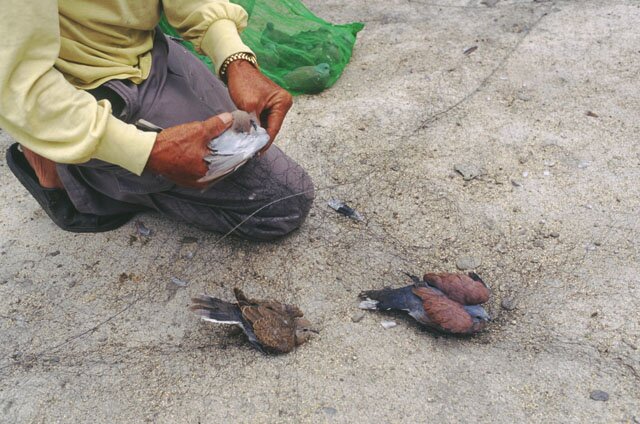BROWSE COUNTRIES/ TERRITORIES
Days of plunder
There are many who practise crony capitalism — getting economic gains by toadying up to the powers that be — but few, if any, match the scale of Liem Sioe Liong.
When angry mobs in Jakarta broke into Liem’s house and burnt his painting in effigy in 1998, the bald man who arrived penniless in Indonesia 60 years ago was worth, conservatively, US$15 billion. That was the estimate of Forbes. The Central Intelligence Agency placed it to be at least US$30 billion.
As Bill Gates and Warren Buffet have shown, it is possible to make a fortune of US$30 billion. You can do it by selling software or be the best investor the world has seen. Or you can invest in a general.
Liem did, on an unknown lieutenant colonel called Suharto in the 1950s. Suharto, in command of the Central Java Division, was dismissed from this post in 1956. But backed by Liem, he manoeuvered his way up the ranks during the struggle for independence against the Dutch, and eventually deposed President Sukarno to become the second head of state of the fledging nation of Indonesia.
Liem reaped his reward by getting monopolies or dominant positions in key markets. Those who got in his way, such as the Prima group in flour milling, were shunted to smaller niches or eradicated. It was a win-win situation for Suharto and Liem, though a losing proposition for the vast population of Indonesia.
Suharto was comfortable using Liem and other Chinese (such as Bob Hasan) because as minorities they could never replace him. And his family also benefited greatly from these Chinese, by having a finger in every pie they engaged in, which covered just about everything in the country.
In Liem’s heyday in the mid-1990s, his Salim Group controlled 90% of Indonesia’s instant noodles market, 85% of its flour market, 35% of its dairy market and more than 30% of its edible oil market, just to name a few. Salim was also in banking, cement, petrochemicals, telecommunications, clove imports (the indispensable ingredient for the type of cigarette favoured by Indonesians), and many other businesses.
The Salim fortune was in ascendance for most of Suharto’s reign. But resentment became rampant after deregulation in the 1980s revealed how much the Chinese tycoons had made from the people via their privileged positions. A cosmetic exercise by the president to ask the tycoons to hand over 25% of their wealth to co-operatives only alarmed foreign investors and led to a flow of money out of the country. The handful of tycoons, already accused of many things by the Indonesians, found that they were also guilty of triggering and masterminding capital flight.
The Asian Financial Crisis of 1997/98 led to a blow-up of Indonesia that threw Suharto out of power. It also deprived Liem of his backer. It is not that crony capitalism has disappeared from Indonesia; if anything it is as strong as before. But Liem’s days as the top crony has passed. Newer faces, some Chinese and other indigenous Indonesians, have replaced him and his son and heir apparent Anthony Salim. Liem, 92 this year, spends most of his time outside of Indonesia, in Singapore and elsewhere. Anthony’s eyes have turned west and are focusing on India. Perhaps he can find some clones of Suharto there willing to give him his dues.
Related Stories:
Login or Register
 Lee Han Shih is the founder, publisher and editor of asia! Magazine.
Lee Han Shih is the founder, publisher and editor of asia! Magazine.
- Asian Dynasties and History
- Conservation of the Environment
- Definition: Culture
- Economy and Economics
- Food and Recipe
- Geopolitics and Strategic Relations
- Health and Body
- Of Government and Politics
- Religion and Practices
- Social Injustices and Poverty Report
- Society, Class and Division
- Unrest, Conflicts and Wars

































 Another Point
Another Point From Jerusalem to the West Bank
From Jerusalem to the West Bank
Comments
Post new comment